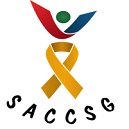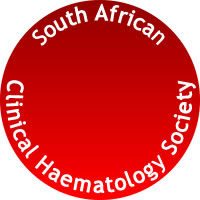Review Article
Building a psychosocial and spiritual care service for children with cancer and their families
Submitted: 15 August 2018 | Published: 31 January 2019
About the author(s)
Marc Hendricks, Haematology Oncology Service, Red Cross War Memorial Children’s Hospital, University of Cape Town, South AfricaClint M. Steenveld, Private, Clinical Psychology, Netherlands
Vanessa Thompson, Private, Clinical Psychology, South Africa
Anabela Andrade, Haematology Oncology Service, Red Cross War Memorial Children’s Hospital, University of Cape Town, South Africa
Gisela Kahl, Haematology Oncology Service, Red Cross War Memorial Children’s Hospital, University of Cape Town, South Africa
Peter Farlam, Private, Clinical Psychology, South Africa
Joyce Balagadde-Kambugu, Haematology Oncology Service, Red Cross War Memorial Children’s Hospital, University of Cape Town, South Africa
Shehaam Hendricks, Social Work Service, Red Cross War Memorial Children’s Hospital, University of Cape Town, South Africa
Angela Rackstraw, Private, Art Therapy, South Africa
Lynn Pedersen, Pastoral Care Service, Red Cross War Memorial Children’s Hospital, South Africa
Dianne R. Burger, Paediatric Palliative Care Service, PaedsPal®, Rondebosch Medical Centre, South Africa
Michelle A. Meiring, Paediatric Palliative Care Service, PaedsPal®, Rondebosch Medical Centre, South Africa
Alan Davidson, Haematology Oncology Service, Red Cross War Memorial Children’s Hospital, University of Cape Town, South Africa
Ann van Eyssen, Haematology Oncology Service, Red Cross War Memorial Children’s Hospital, University of Cape Town, South Africa
Abstract
Background: Comprehensive, coordinated psychosocial, supportive and spiritual care is an essential component of the holistic care of childhood cancer sufferers and their families.
Aim: The authors detail the development and value of a multidisciplinary psychosocial care team as an essential adjunct to care of childhood cancer sufferers.
Methods: A historic preamble details a period during which psychosocial and supportive care was the sole province of the paediatric oncologists and social workers and describes that the process of creating a multidisciplinary psychosocial and spiritual care team has enhanced medical care.
Results: Each member of the psychosocial group describes their care philosophy and their role in the clinical setting. We also describe the critical role of the meeting as a teaching vehicle for oncology fellows.
Conclusion: This reproducible partnership between public and private sector practitioners, designed in a resource-constrained setting, affords a diverse and highly skilled group of professionals the opportunity to meet the medical, psychological, social and spiritual needs of patients and families as they transition through the care journey.
Keywords
Metrics
Total abstract views: 4540Total article views: 5090



